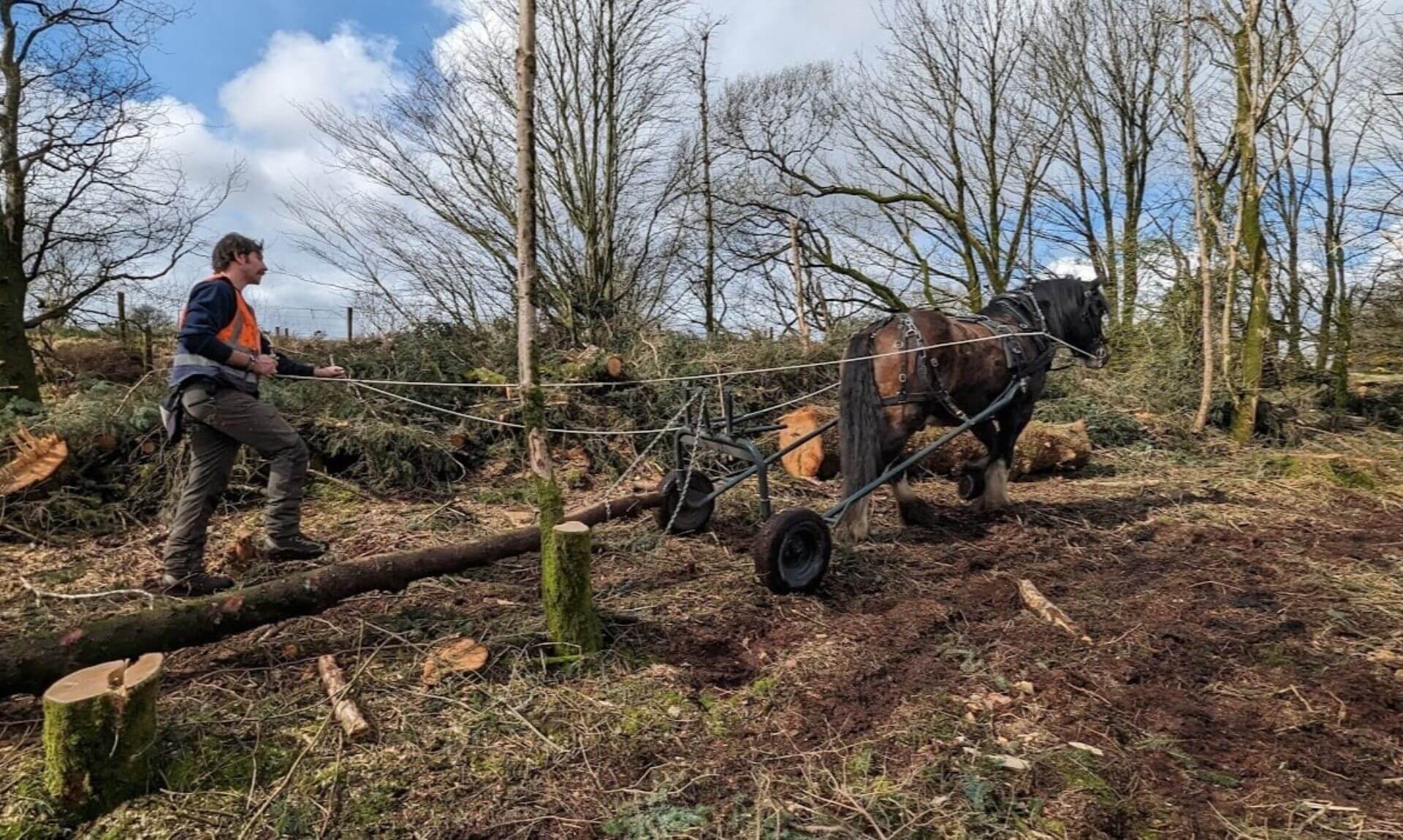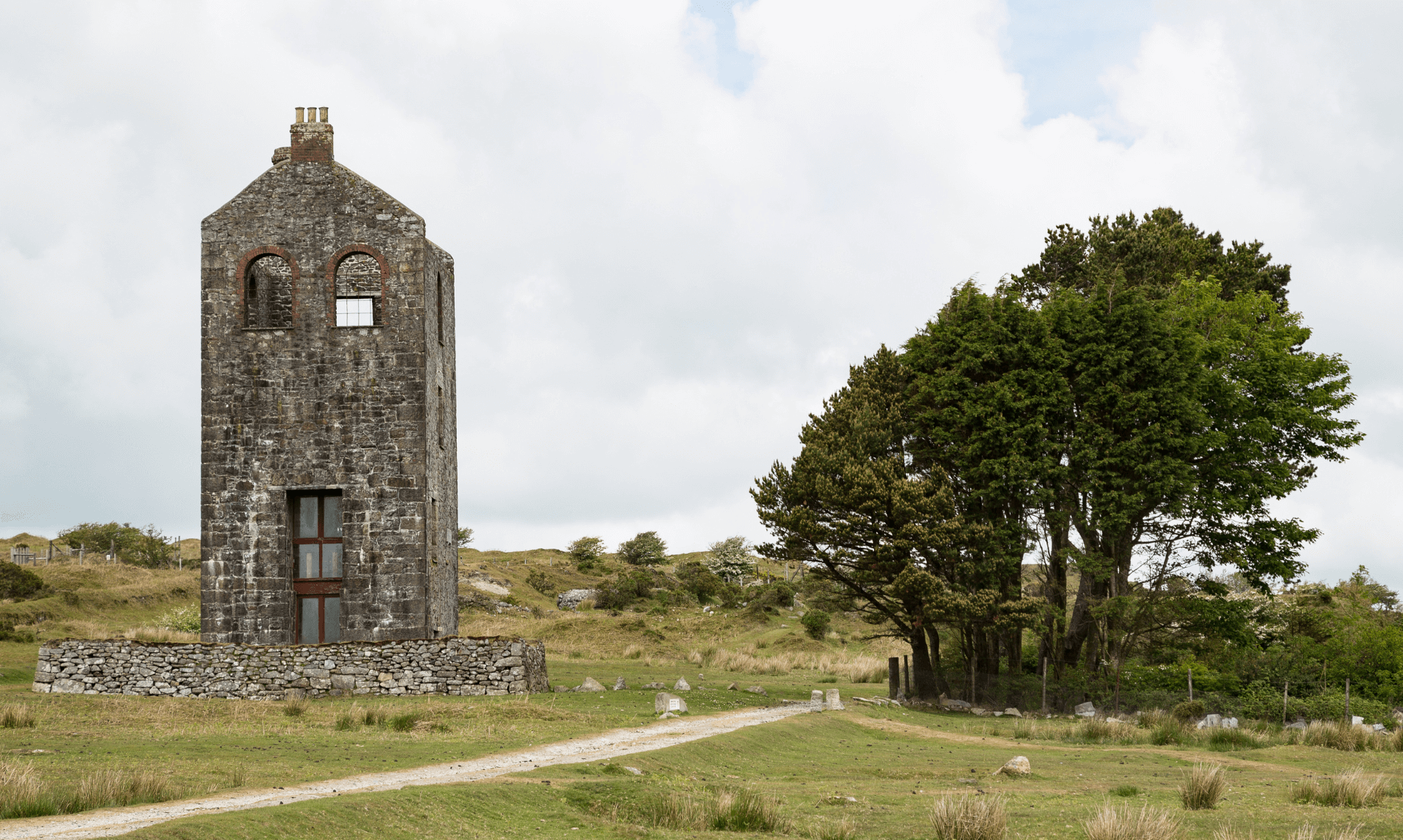Harnessing Tradition for Environmental Conservation: Shire Horse Powers South West Water’s Tree-Planting Effort
In an innovative move to promote biodiversity, South West Water has embarked on a significant environmental project at Park Pit near Bodmin Moor, employing traditional horse logging methods to plant over 3,000 native trees.
This eco-friendly technique minimises damage to existing ecosystems, spotlighting a sustainable approach to forestry management.
Ancient Method for Modern Conservation
The project focuses on replacing non-native trees with native broadleaf species such as oak, hazel, and rowan. These trees are known for their superior benefits to local wildlife, contributing to a richer, more diverse ecosystem. To achieve this, South West Water has partnered with Wild Arborist Horse Logging, a company that specialises in traditional and low-impact forestry techniques.
At the heart of this operation is Jackson, a 17-year-old shire horse, who plays a crucial role in the removal and transportation of trees across the site. This method avoids the use of heavy machinery that could otherwise harm the delicate terrain and plant life.
The Benefits of Horsepower
Hannah Bailey, Biodiversity Action Officer at South West Water, explained the advantages of using horses: “Horses have a low environmental impact and their lighter footprint helps to preserve ecosystems. They can navigate through dense forests without causing as much damage to the surrounding vegetation compared to heavy equipment, making them the perfect fit for our biodiversity works at Park Pit.”
The use of horse logging is not only an environmentally sound choice but also a nod to a practice that dates back to medieval times. Shire horses like Jackson are particularly suited to this task due to their agility, temperament, and strength—they can weigh over 1,000 kg.
Commitment to Animal Welfare
The welfare of horses is a paramount concern for Toby from Wild Arborist Horse Logging. Ensuring the safety, happiness, and health of the horses is critical, with working conditions carefully monitored. “Shifts never last more than two hours at a time, with a maximum of three shifts per day and no more than one or two days of work in a row,” Toby stated, underscoring the ethical considerations of their work.
Toby also highlighted the commercial viability of combining horse and machine power to foster a sustainable forestry practice. He expressed gratitude towards South West Water for the opportunity to apply their specialist skills in completing the Park Pit project.
Looking to the Future
Encouraged by the success of this project, South West Water is considering the use of shire horses in other areas it manages, aiming to further reduce the environmental impact of machinery. This project not only demonstrates a practical application of sustainable forestry but also preserves an important cultural heritage in horse logging.
More information about Wild Arborist can be found at: Horse Logging in Cornwall — Wild Arborist
Share This Story, Choose Your Platform!
To keep up with the latest cornish news follow us below
Follow CornishStuff on Facebook - Like our Facebook page to get the latest news in your feed and join in the discussions in the comments. Click here to give us a like!
Follow us on Twitter - For the latest breaking news in Cornwall and the latest stories, click here to follow CornishStuff on X.
Follow us on Instagram - We also put the latest news in our Instagram Stories. Click here to follow CornishStuff on Instagram.
You Might Also Be Interested In
Don’t Miss What’s Happening in Cornwall
Join others in Cornwall by receiving the latest daily news in Cornwall, sent direct to your inbox.




























